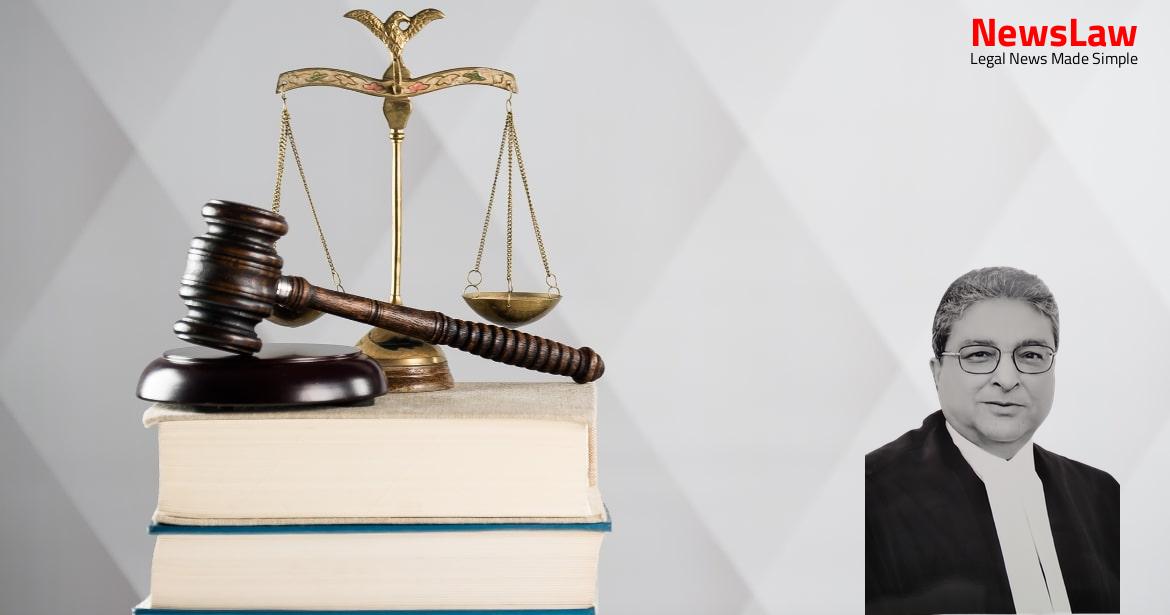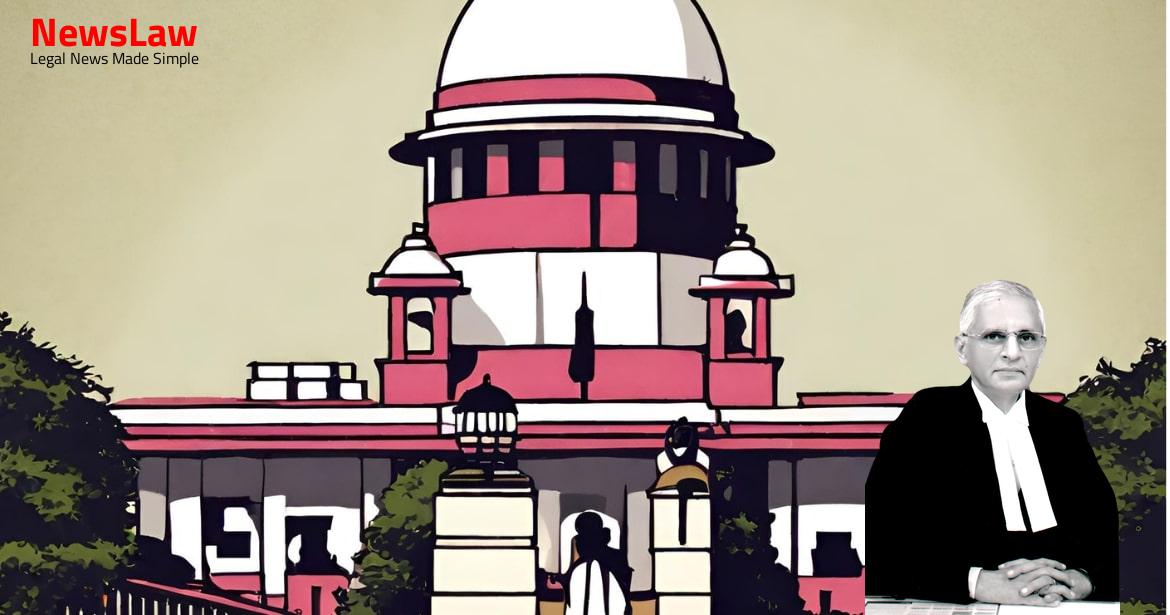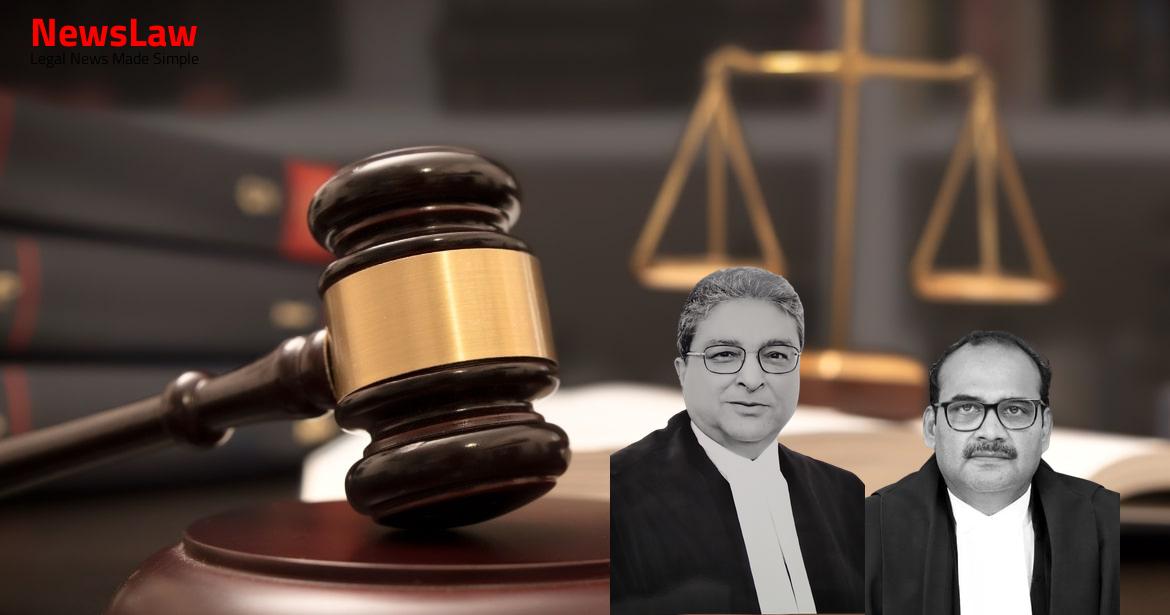Explore the detailed legal analysis conducted by the Court in a recent case revolving around the interpretation of Land Acquisition laws. The case delves into the nuanced application of statutes and their impact on determining the validity of awards, shedding light on the complexities of legal proceedings and the importance of comprehensive analysis in aligning with legislative intent.
Facts
- The appellant sought a declaration from the High Court
- The High Court dismissed the claim on the grounds that it was not justiciable
- The appellant appealed to the Court of Appeals
- The Court of Appeals found in favor of the appellant and declared the claim justiciable
Also Read: Land Auction Dispute Resolution
Issue
- Interpretation of Section 24(1)(a) of The Right to Fair Compensation and Transparency in Land Acquisition Act, 2013 is the primary legal issue.
- The specific question is whether the two-year period under Section 11A of the Land Acquisition Act, 1894 applies post its repeal or the twelve-month period under Section 25 of the 2013 Act applies for awards under Section 24(1)(a) of the 2013 Act.
- The appeal also delves into whether the award dated 30 October 2014 is within the permissible time limit or if the acquisition proceedings have lapsed.
- Further, the investigation includes whether the award from 30 October 2014 is backdated or manipulated in terms of the date.
Also Read: Analysis of Bail Conditions in Criminal Appeal No. INSC 48/2024
Analysis
- The High Court quashed the award based on prima facie findings of backdating
- Section 11A of the 1894 Act and Section 25 of the 2013 Act are compared
- Non-compliance with payment provisions results in higher interest pay-outs
- Manipulation and backdating of award were considered insignificant unless proven otherwise
- The importance of leaving aspects open for further inquiry by appropriate authority
- Issues with dates mentioned in the communication and award were highlighted
- Different interpretations of rules and Acts led to the need for comprehensive analysis
- Exclusion of time was crucial in determining the validity of the award
- Importance of the publication of the award within the specified timeline
- The limitation period commencement and relevance to the case were discussed
- Inconsistencies in the proceedings and impact on acquisition process were deliberated upon
- Interpretation of phrases like ‘pertaining to’ and ‘relating to’ in legal contexts
- The significance of legislative intent in interpreting laws and procedures
- Issues concerning the lapsing of acquisition proceedings were examined
- The necessity of a fair and comprehensive interpretation aligning with legislative goals
- Section 24 of the 2013 Act deals with the lapse of land acquisition proceedings initiated under the Land Acquisition Act, 1894.
- If an award has not been made under section 11 of the 1894 Act, the provisions of the 2013 Act regarding compensation determination will apply.
- If an award has been made under section 11, the proceedings will continue as if the 1894 Act has not been repealed.
- If an award has been made more than five years prior to the commencement of the 2013 Act and physical possession of land has not been taken or compensation has not been paid, the proceedings are deemed to have lapsed.
- The appropriate Government can choose to initiate fresh land acquisition proceedings in such cases.
- Section 6 of the 2013 Act specifies the effects of repeal of any enactment, ensuring that rights, obligations, liabilities, penalties, and legal proceedings under the repealed law are preserved.
- Section 6 of the General Clauses Act, 1897 is also applicable in interpreting the effect of repeals.
- The Collector is required to make an award within twelve months from the date of publication of the acquisition declaration under section 19.
- The appropriate Government can extend the twelve-month period for making an award under certain justifiable circumstances.
- All decisions to extend the award-making period must be recorded in writing and notified publicly.
- Section 114 of the Act addresses the repeal and saving provisions, specifically repealing the Land Acquisition Act, 1894.
- Interpretation of the expression ‘relating to’ in the context of the Small Causes Court Act, 1887, and its comprehensive nature in covering suits and proceedings related to the recovery of possession.
- The usual meaning of ‘relating to’ in legislation indicating a connection, association, or concern with the subject matter.
- The distinction between ‘rights’ and ‘procedure’ in the retrospective application of statutes as discussed in the Indore Development Authority case.
- The significance of vested rights and the impact of retrospective application on fairness to the parties.
- The operational prospective nature of the 2013 Act as determined in the Indore Development Authority case.
- The broad interpretation of ‘in relation to’ in the context of an arbitration clause as discussed in a specific case.
- Different interpretations of the expression ‘relating to’ in various statutes and contexts to bring association or connection with the subject matter.
- The wide interpretation of ‘stay of action or proceedings’ in the proviso to Section 11A of the 1894 Act to encompass any court order preventing authorities from passing an award.
- The broad meaning of ‘in relation to’ as a comprehensive expression implying connection or association with another subject matter.
- The comprehensive and inclusive nature of the words ‘relating to’ in legal interpretation, considering both direct and indirect significance.
Also Read: Conviction Upheld for Murder and Concealment of Body
Decision
- Section 25 of the 2013 Act applies to awards made and published under Section 24(1)(a) of the 2013 Act.
- Period of court order inhibition is excluded while computing the period under Section 25 of the 2013 Act.
- The State of Maharashtra is directed to conduct an inquiry regarding manipulation and backdating of the award.
- The impugned judgment setting aside the award and holding that the acquisition proceedings had lapsed is set aside.
- It is held that the acquisition proceedings had not lapsed and the award is legal and valid.
- The award dated 30 October 2014 was made on or before the extended date of 20 March 2015, making it valid.
- The period from 26 May 2014 to the new notification dated 13 August 2014, which was stayed by the High Court, has to be excluded.
Case Title: THE EXECUTIVE ENGINEER GOSIKHURD PROJECT AMBADI (BHANDARA) Vs. MAHESH (2021 INSC 711)
Case Number: C.A. No.-006673-006674 / 2021



